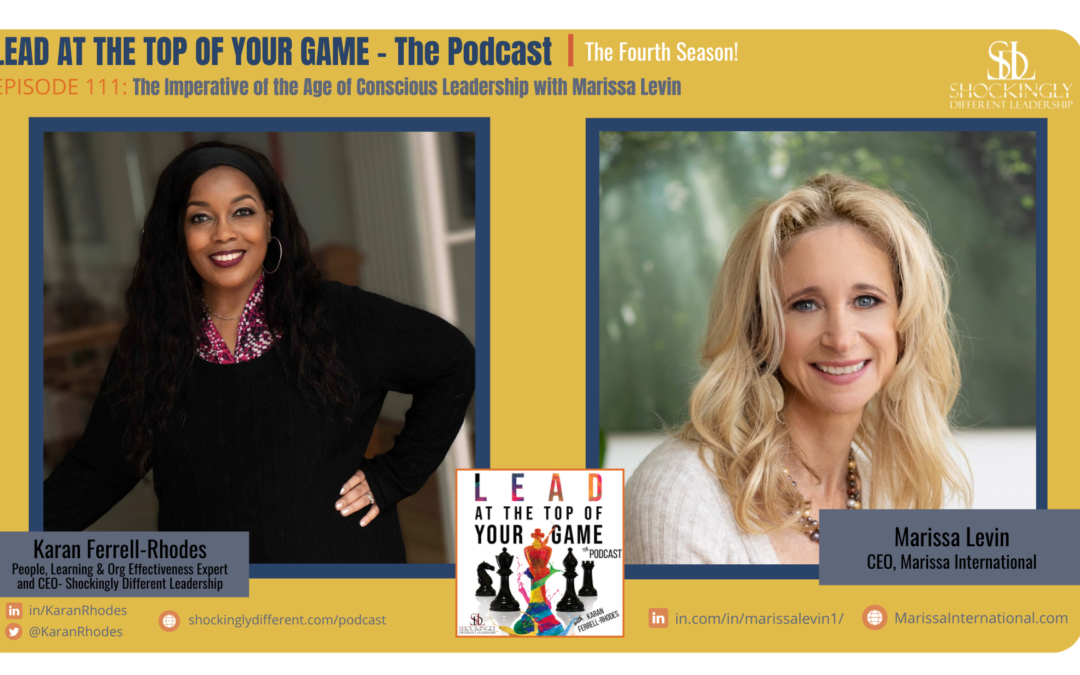IN THIS EPISODE, KARAN FERRELL-RHODES INTERVIEWS MARISSA LEVIN.
This episode provides valuable guidance for entrepreneurs looking to scale their businesses while maintaining a strong, purpose-driven culture!
Marissa Levin discusses overcoming challenges, valuing oneself, and building successful businesses with intention and strategy. She emphasizes the intersection of spirituality and leadership, highlighting emotional and psychological safety in the workplace. She also introduces the I5 Conscious Leadership Model, focusing on integrity, insight, and inspiration. Finally, Marissa explores the importance of advisory boards, corporate governance, and courageous agility in leadership.
Marissa Levin is the CEO of Marissa, International and a five-time entrepreneur, best-selling author, and leadership expert. She shares her journey from founding Information Experts to launching I5 Conscious Leadership.
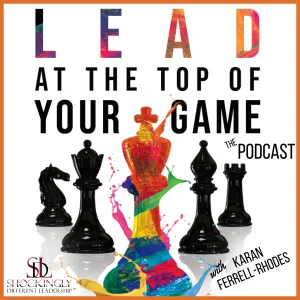
Posted by
SDL Media Team
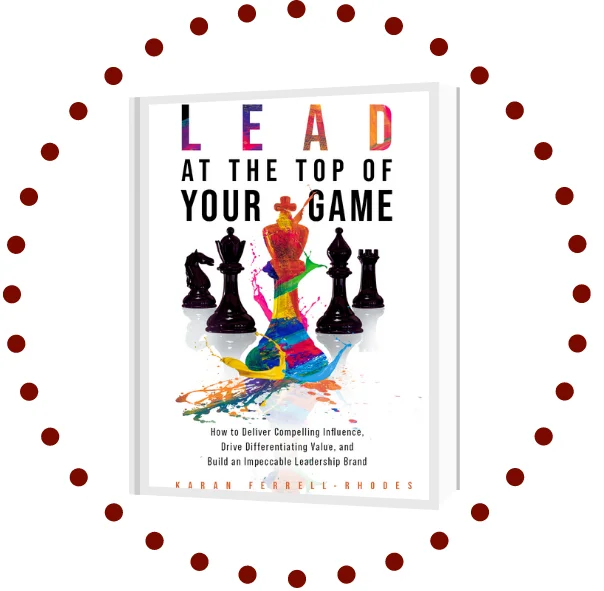
Rather view our video podcast?
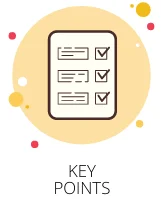
WHAT TO LISTEN FOR:
- How is spirituality incorporated into leadership?
- What are the key components of the I5 Conscious Leadership Model?
- Why are advisory boards important for businesses?
- How did the COVID-19 pandemic influence leadership perspectives?
- What is “courageous agility,” and why is it important in leadership?
- How does the i5 Conscious Leadership Model impact business success?
“We alone set the standard for how others value us.”
FEATURED TIMESTAMPS:
[02:38] Marissa’s Personal Life and Background
[05:13] Entrepreneurial Ventures and Challenges
[09:46] Signature Segment: Marissa’s entry into the LATTOYG Playbook: Leadership and Spirituality
[15:36] I5 Conscious Leadership Model
[22:43] Built to Scale: Advisory Boards and Corporate Governance
[27:48] Signature Segment: Marissa’s LATTOYG Tactic of Choice: Leading with Courageous Agility
[31:22] Contact Information
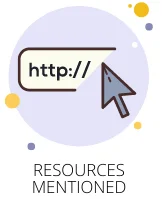
ABOUT MARISSA LEVIN:
Marissa Levin is a five-time entrepreneur, speaker, best-selling author, and leadership expert. As CEO of Marissa International (MI) and i5 Conscious Leadership, she helps leaders reach their potential and build healthy workplace cultures. 1995 Marissa founded Information Experts, growing it to a $13 million business with 75 employees and winning over 80 awards. In 2012, she launched Successful Culture International (SCI) and later sold it to focus on conscious leadership.
Marissa is a former Inc. Magazine columnist and author of the best-selling book Built to SCALE. She is also the board expert-in-residence for the Goldman Sachs 10K Small Business Program. With a Master’s in Human Resources Development and various certifications, her mission is to empower 1 billion people to live joyful, intentional lives.
LINKS FOR MARISSA:
- Website: MarissaInternational.com
- LinkedIn: linkedin.com/in/marissalevin1/
- I5 Conscious Leadership: i5consciousleadership.com/
ADDITIONAL RESOURCES FOR YOU:
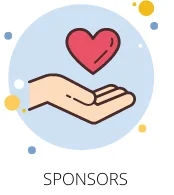
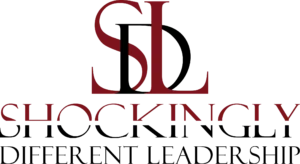
Episode Sponsor
SDL is the go-to firm companies trust when needing to:
- supplement their in-house HR teams with contract or interim HR experts
- implement leadership development programs that demonstrate an immediate ROI and impact on the business
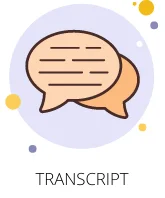
Click the plus button on the tab to access the written transcript:
Episode 111 | The Imperative of the Age of Conscious Leadership with Marissa Levin
Marissa Levin 00:00
We don’t want to make any long term decisions in short term emotional states. And so I knew that it wouldn’t have been wise for me just to up and quit, that I needed to have a plan. And it really was after that that I was very thoughtful about putting in a plan to start my first business. And that’s when I launched my first business, more than 30 years ago.
Voiceover 00:04
Welcome to the “Lead at the Top of Your Game” podcast, where we equip you to more effectively lead your seat at any employer, business, or industry in which you choose to play. Each week, we help you sharpen your leadership acumen by cracking open the playbooks of dynamic leaders who are doing big things in their professional endeavors. And now, your host, leadership tactics, and organizational development expert, Karan Ferrell-Rhodes.
Karan Rhodes 00:36
Hey, there superstars. This is Karan, and welcome to another episode of the lead at the top of your game podcast, we are immensely honored to have superstar of a guest today on our show. We’re so pleased to have Marissa Levin, who is a five time entrepreneur, speaker, Best Selling Author and leadership expert. She’s also the CEO of Marissa International and I five conscious leadership, where she helps leaders reach their full potential and also helps organizations build healthy workplace cultures. Now, in full transparency, I met Marissa at an event where she was speaking about how to create strong corporate advisory boards, and I tell you the truth, I was truly mesmerized. And you all know I’m very discerning about events and speakers, but she truly captivated my attention, so much so that after the event, I reached out and asked if we could connect, and we’ve had an opportunity to do that numerous times, and I realized we were truly kindred spirits, and someone I definitely need to have on this podcast to feature to you. So welcome to the podcast. Marissa.
Marissa Levin 01:47
Oh, it’s such a pleasure to be here. I agree with you. Totally. Kindred spirits.
Karan Rhodes 01:51
Kindred spirits on so many levels. Well, we have a ton to talk about, and I know a little time to do so. So we’re going to jump right in, but before we get deep into the area of leadership and your background and everything, we always love to hear just a little bit more about our guests. So for just as much as you feel comfortable, would you mind giving this a sneak peek into your life outside of work?
Marissa Levin 02:16
Sure. So being an entrepreneur, you know that kind of weaves into all aspects of our life, but I am someone who just I lean into all aspects of life. My relationships are by far the most important aspect of my life. I have two sons, ages 24 and 27 and future daughter in law, which I’m so excited about. They bring me so much joy, and I’m very grateful and blessed to have so many amazing women friendships, and so I really nurture those. I am a big outdoor person. I love being at the beach. I love being in nature. I love hiking, and I also really just enjoy opportunities to express so I love music and concerts and dancing. I love going to the theater. I love museums. I’m an insatiable learner, just constantly exploring new things, new ideas. I’m just someone who is really grateful to be alive, which is probably also because not only do I just have a like a heart full of gratitude, but I’ve heard the words, you have cancer twice, so everything is great, but I’m a melanoma survivor. I had a breast cancer scare, but these are things that definitely inspire a very strong appreciation for your mortality in your life. You know when you hear those words? So I really don’t ever take any day for granted.
Karan Rhodes 03:40
That’s right. You’re so right, those type of experiences really ground us. And I’ve had a scare to myself, so I totally can empathize with that. And you know, based on, you know, your short share, for those who are long term listeners of the podcast, I know they’ve already picked out many similar interests as well, because I talk about my love for theater and the arts and the outdoors. I love the organic garden, and I love to collaborate, and people give me energy, and I’m also voracious learners, so they probably like, okay, there’s a clay Karan Kline there with you. But yeah, so kindred spirits, we can drop the mic on that one. All right. Well, thank you so much for giving us a sneak peek, and let’s go ahead and get started. Marissa on, I think it would be great to first being a serial entrepreneur, sharing just a bit about your professional background and your zest for following through on new ideas and businesses. So can you share with our listeners just a high level overview of some of the entrepreneurial ventures that you’ve been a part of?
Marissa Levin 04:51
Sure, sure. So as you mentioned, I’m a serial entrepreneur for the last 30 plus years, I launched my first company of. About 32 years ago, after I had been working for a man that capped my worth at $34,000 so I don’t even know if you know that story, Karan, but I was a journalist on Capitol Hill. I graduated with my undergraduate degree with from University of Maryland in English, with a concentration in Shakespeare, so…
Karan Rhodes 05:20
Really Shakespeare? Amazing,
Marissa Levin 05:22
Not the typical entrepreneurial path, although liberal arts is so important for communication, right and expression and connection. So I graduated with the English degree. I landed myself a job on Capitol Hill as a journalist. Was then hired away by a consulting firm that was specializing in the telecom industry, which was really what my area of specialty was back, you know, 30 years ago, went to work for him, really fell in love with the field of consulting and adult learning, you know, human resources, organizational development, put myself through graduate program, a three year graduate program in organizational development and human resources did that in two years. Went to my boss, after being mentored and coached by an advisor on how to quantify my worth, really, I presented a business case, and I said, this is how much I’m worth in the marketplace based on my education, the number of years of experience my industry, how much I’ve made the company. I went and I went and I got all of that data, because he was double and triple booking me on projects. I was bringing him a boatload of revenue, profitable. And he looked at me and he said, You’ll never be worth more than $34,000 to my company. So I knew then, you know, my mom taught me, You never let anyone else determine your value or your worth. And it was in that moment that I heard that message, but I also knew that you can’t just make a really long term, important decision whether you’re either in a peak or whether you’re in a valley, right? We don’t want to make any long term decisions in short term emotional states. And so I knew that it wouldn’t have been wise for me just to up and quit, that I needed to have a plan. And it really was after that that I was very thoughtful about putting in a plan to start my first business. And that’s when I launched my first business, more than 30 years ago, and I launched that with my first single $34,000 or $35,000 contract to do work in three months as a part time contractor for an association. I had found that job in the newspaper, because this is long before LinkedIn, long before, long before even like
Karan Rhodes 07:29
I remember! You could circle opportunities in the newspaper. There was a little…
Marissa Levin 07:32
That’s what I did! I circled opportunities inthe newspaper, and I found this full time position, and I just had the like intent to go to these people and really paint the picture, and that really is what entrepreneurship is, right? The picture of why you are the unique solution. And so I painted the picture on why they didn’t need a full time person, but that I could do the work they needed as a contractor in three month period, right? And so I made my business case for them, they hired me, and so I made $35,000 in three months after being told that I wasn’t even worth $34,000 annually. And that really was the launch of my first company, information experts, which I grew to about $14 million over the next 17 years, doing government work for civilian, defense, intelligence, nonprofit private sector. And then I put a succession plan in place and left that. And then I launched my second company. So that was my first entrepreneurial event endeavor. Then I launched successful culture International. I built that brought in a partner. Halfway through, we had a liquidity event with that. We sold that in 2020 and then in the middle, I launched another company with another partner to help women get over a million dollars with year long cohorts, and now I’m building my other two companies. So it just been a journey over the last 30 years,
Karan Rhodes 08:50
I’ll tell you, wow. And throughout all of that, it sounds like you had to have a lot of resilience and truly understand what type of leader you wanted to be to carry these ventures all the way through. And all of us know how hard it is, the ups and downs of entrepreneurship, but then also, I can imagine the anxiety and nerve wracking process of when you’re exiting or selling your company or having to be acquired. And how did you approach? We’re just curious, how do you approach being a leader through very difficult times such as that?
Marissa Levin 09:25
So that’s a great question. We’ve talked about this like I’m a very devoted spiritual path, right? Spirituality is definitely fully interwoven into my entrepreneurial into all aspects of my life, and I am very much that intersection of spirit and strategy, right? Like spirit being the inner work, the inner, the inner beings of us, and we know that as within, so without, right? So the way that we want to show up in our entrepreneurial life, in our leadership life, what your professional life, whatever that is, even if you don’t own a business. Business, the way that we’re going to show up will be informed by what’s happening internally. Okay? So when you ask that question, and I look back, you know, when I first started my first company, I didn’t even know what culture was like. That word wasn’t around, right? It really wasn’t around over 30 years ago, but I knew from my experiences and how I had been raised that I didn’t want to work for someone that didn’t value me, and that’s why I started my own company, because the only person, the person who’s going to value us most in the world, is ourselves absolutely alone set the standard for how others value us. And so when I started my first company again, like I was an English major, right? Like, I didn’t have an MBA at that point. I didn’t really know business, but I wanted to create a value centric company. Like that was the first thing that I did. Karan, when I started my first company here I am, like, early 20s, right, right? Literally, walked away from a job, and we didn’t have the women’s networks that we have now. We didn’t have an online community the way we have now all these platforms. I didn’t know what I was doing. I just knew what I didn’t want to do. So I created my list of core values as someone in their mid 20s, as a first entrepreneur. That’s like what I knew to do. So I launched my core values, and the first value was quality, quality of life inside the company, quality of life outside the company, and quality of products and services. My first hire ever was a director of quality control. So I think for me as a leader, I have always been someone who is so value centric and mission driven. I grew up in a house that was mission driven. My mom ran. She was controller of the largest AIDS and homeless shelter in Baltimore City as part of the other work that she did. She also brought over a lot of refugees, at the time from Russia, and got them all in housing, and got them all ESL training, and got them all jobs like my mom has always been someone who lifted others, and my dad the same way, worked at NASA for 40 years, completely mission driven and impacted millions of lives through his work. So for me, I guess I naturally, like took that into my company, and I knew even then, I wanted to create something where people felt seen and heard and valued, and I wanted to make sure I created a safe space, because I had come from an environment that wasn’t safe, right? Like there were lots of things that were going on in my old job where I did not feel emotionally safe, psychologically safe, even at times, physically safe. So for me, when I started my first company, yes, it was around my skill set and my passion of consulting and instructional design and curriculum development and all of that, but it also was around the core of who I was, of wanting to create an environment where people fully felt valued and seen. And that is why the first thing that I did was create my values when I started my first company, and to this day, I’ve learned after 30 years like my work here in this world is to help people step into the greatest possibility of creating these safe spaces. But I also bring a stealth, strategic mind to it, right, like it was a powerful combination just about Pollyanna, like, Oh, let everybody feel love, right? You’re building a business. There has to be processes and infrastructure and a plan and, you know, accountability and metrics and all of the strategic piece that come that overlays that. So I think I’ve led consistently through my entire 30 year journey of being very value centric, and also be being very focused on the top line and bottom line and making sure that my people feel seen and heard. For me, the term CEO chief it’s not just Chief Executive Officer, it’s chief emotional officer, it’s chief empathy officer, it’s chief energy officer. It all rolls into one,
Karan Rhodes 14:03
into one, yes, absolutely multifaceted and based on and hearing your stories and how you grew up and how you’ve lived your life, it just seems, you know, I can just feel how values and mission are truly part of your DNA, and that’s I was so impressed when you share that your mission is to empower 1 billion people to live joyful, intentional lives. Yeah, and into your point, it’s just not what is it strawberries and unicorns and skipping through fields with daisies? It’s bringing it back to or helping individuals bring it and companies bring it back to how they can truly have that mission, but still make a difference in a meaningful, concrete way. And I just absolutely love that Absolutely. Now I would be remiss if I did not give you some space to share with us about you have so many ventures, but in particular, we talked in depth. About, about i Five conscious leadership. And so I would love for you to share with the audience what you and your partner are attempting to do via this venture, and how you all are impacting companies and growing stronger leaders through that.
Marissa Levin 15:14
Sure. Thank you. So you know, we all have our superpowers, right? We all have those zones of genius,
Karan Rhodes 15:20
Yes,
Marissa Levin 15:20
And as I’ve evolved, I definitely have learned that one of my superpowers is I’m able to create compelling models on how to work, how companies can work, and what those processes are, and I’m able just to really create these memorable models. So, you know, I created the scale model for building advisory boards, select, compensate, associate, leverage, evaluate, evolve and exit. And that’s my book, Built to Scale. I created the scale Academy for my old company, successful culture, advanced leadership, Education Academy, and that became something that we actually were able to sell when we sold our intellectual property. I’ve created the power model, purpose, ownership, worth, efficacy and resilience to help women step back into their power. And that’s just something like that I kind of play with I haven’t done that much with it. And then I’ve also created the i Five model, the i Five conscious leadership model, which you’ve asked me about, and that is intention, identity, integrity, insight, with a capital S, and then inspiration, and just these things come to me from my experience, and then also just from like, streams of consciousness. And for me, like, you know, because I’m so dialed into, like, the spiritual temperature of the world right now, higher levels of consciousness are just needed everywhere, right like, at the micro level, just the way that we’re showing up with intention and awareness and consciousness in our personal one to one relationships. And then at the macro level, like how we are impacting the world, because of how we may be leading other people, right or influencing other people. So that need for consciousness has never been greater our world, our planet. You know, we’re elevating our consciousness as humanity is going through so many different shifts, and so leaders are in a very unique and auspicious and special position when they have people following them, that they can actually elevate the consciousness, not only of themselves, and not only of their organization, but of their people, like, you know, really, like, at a very deep level. And so that’s the work that we do. And again, it’s not woo, woo. It’s tied to like, the top line and the bottom line, right? Because when leaders are more conscious, your employees are more connected. They feel seen, they feel heard, they feel understood. They are more connected to their leaders. When leaders are acutely present and when the people feel more connected to the leaders, they feel psychologically safe. They feel connected to a patient. Guess what happens? Engagement goes up, trust goes up. Right when engagement and trust go up, what else goes up, profits go up. It’s all tied together. It’s all tied together, and this is why conscious leadership is so important. So we have curriculums that are being rolled out now across the country and government agencies, private sector agency, private sector companies, for both emerging leaders and advanced leaders, it’s really rewarding and impactful. And I know you can understand this when you are facilitating and you’re seeing the light go going like the light bulb going off, right? You’re seeing the light come into someone’s eyes, like, where they’re having, like an epiphany or an aha moment, or they, you know, they have, like, an elevated sense of self awareness because of something that you’re teaching. I mean, to experience that to be the witness, be the creator and the witness of that. I mean, there’s nothing like it, right? So that’s what I five does. It really does kind of elevate the consciousness of organizations through the consciousness of leadership, because an organization’s consciousness can never be higher than the consciousness of its leaders.
Speaker 1 19:09
Love that. And so for the programs that you all offer, are they long I’m sure you have to teach the concept to the leaders, and then are there long term coaching or monitoring? How do you keep leaders skills very sharp in this space?
Marissa Levin 19:24
Sure. So that’s a great question. What we also do is we are my partner and I are certified in the EQ I, the emotional emotional intelligence assessment, and we bring that into our our work. We administer the EQ I like at the very beginning of the assessment, and we educate them on the importance of emotional intelligence, and that becomes wrapped up into all of our work. So we have coaching sessions around emotional intelligence as we roll out the curriculum. We have both individual coaching and then we also have group. Coaching, and then we do assessments at the end to kind of do wrap ups. So yeah, we do integrate EQ, I we integrate personal coaching, we interview, integrate group coaching, we enter integrate, like all of that into the whole program.
Karan Rhodes 20:15
Wow, fantastic. That was awesome. And is it ideal for a specific size of company or team to roll out. Or I guess I’m asking, Are there any parameters around who, who this curriculum would be ideal for?
Marissa Levin 20:29
So the way the curriculum is structured is it’s modular, right? So while they certainly build on one another, they’re not required for one another. So if a company only wanted to learn the fundamentals of conscious leadership, right? And they only wanted to do intention, integrity, identity, insight and inspiration. And they only wanted to do those five two hour modules. Yeah, they could just do that, even if they just wanted to learn about one of them. And they wanted to do one two hour module, they could do that. It’s standalone, like they all integrate, but they’re all standalone, and then we have the rest of the curriculums about all sorts of topics, you know, the emerging leaders. It’s about how you lead yourself, how you lead others, and then how you lead at the executive level of an organization that is all kind of progressive. And then for the emerging leaders, we have topics everything from like, you know, conscious communication skills, how to manage remote workers giving and receiving feedback. What are your unconscious limitations? We have? You know, a dozen programs around that, and again, they are all standalone, but they also all integrate really well together. So there really are programs are for any company of any size with any budget, depending on what they want to focus on.
Karan Rhodes 21:42
Wonderful I’d like to take a detour and spend just a tad bit of time on some of the lessons learned in your book built to scale. Because when we talk about leadership, you know that’s kind of at the pinnacle, where boards are really focused on the government, companies and organizations and the impact that they’re trying to make in the world, right? And so I was wondering if you could just share, this is a high level book is all about and why you wrote it, and how you wanted to connect and send messages to companies as they think about their you know, corporate and private advisory boards.
Marissa Levin 22:20
Sure. So I love, I love that question. You know, I’m so passionate about the board work. As you know, I’m on the faculty for stakeholder impact Foundation, which is where we met in that cohort. And then I’m also one of the entrepreneurs in residence for the Goldman Sachs 10k small business program. And I’ve been, I’ve been very happy to be involved and teaching these amazing business leaders that are coming through that program, really, I think I’ve been for the last eight years. So for me, I built my first board with my first company. My company was successful, right when you know the air quotes, it was successful, meaning that it was profitable. We had lots of money coming in the door. We had lots of projects, I agree people, but Karan, it was like the Wild Wild West, like it just, was we, it was we always say, I always say that building your first company is like building a plane while you’re flying it right. Every day, we were like, figuring out, like, what was going on, right? And so an advisor, an informal advisor, had told me, you know, what about looking at an advisory board? And I was like, what’s an advisory board? And he explained to me that it’s this hand selected group of advisors that really like are very aligned to what your company needs. So I went out there to do research on it, and there were lots of articles that you should do it, but there was no information on how to do it, so I spent a year documenting my own process and built the model, the scale model, and I interviewed a couple 100 other business owners, and just this is long before chat GPT. And, you know, AI probably would have cut it down significantly, but it took me a year to really be in the work and learning about advisory boards, and then I wrote the book, and my advisory board really changed my first company. I mean, it doubled our revenue because of the people that we had on the board, and they were able to walk us into opportunities, especially with government agencies that we never would have gotten right so, yeah, and it also did so much for our infrastructure and our people and our processes and the way we leverage the board. It really transformed my company. And so that was the really, kind of, like, the catalyst, the impetus for me writing the book. And, you know, now it’s been, you know, eight years, I think. And while the book definitely, you know, like, I could update it with, like, you know, information about diversity, or, you know, add a few other things, the book is an evergreen book, and it’s still as as relevant and as timeless today as it ever was you have a copy of it, so it just really is a nice and process for business owners to really start thinking about how they intentionally surround them. Selves with the right
Karan Rhodes 25:01
I love that, and I will share listeners I do have the book. I’ve read the book, I’ve had an opportunity to hear Marissa speak on it at length, and I will share that it’s an appropriate book no matter if you’re employed with an employer, or you’re an advisory board member or an entrepreneur, no matter your career status, because it gives perspectives on how to think and lead and through this world of work. And it generally has nuggets for every single person out there, although she does, you know, focus on how to think about and build advisory boards, there are nuggets of, you know great information. So I do encourage you all to get the book. And it’s a quick read, but full of facts. And, you know, I don’t endorse a lot of books out there, but this is definitely one I encourage you to pick up. Thank you. Now, before we let you go, Ms, Marissa, you know, I’ve got to ask you our featured question that we always ask all of our guests and for my new listeners, you know, I commissioned research a few years back on some of the key factors and tactics of high potential leaders. And out of that research, I read the book lead at the top of your game, which is also this is the accompanying podcast, and our featured question we always like to ask our guests is which of the seven tactics? Oh, look, she’s provided it for those that are looking on our video, but thank you for that. Marissa, we always ask, you know, which of the seven tactics that we write about out of the research really resonated. And as you all know, all seven are equally as important. You leverage them at different times and in different ways, but there’s usually one that really pops out and resonates with our guests. And so Marissa was so kind to say that leading with courageous agility really resonated with her and for my new listeners, courageous agility is all about your ability to have the courage and fortitude to take calculated risk stand up for what you believe in, but still move forward even if the future is uncertain and unclear. It’s all about taking those baby steps, even if you don’t have all the data and information that you need to move forward confidently, but you still need to do it anyway. It’s all about that grit and courage. So Marissa Curtis minds would love to know why did courageous agility resonate with you? It
Marissa Levin 27:27
was immediate. It just It popped out because of the word agility. I mean, courage is also a very important word. But for me, I just have always been someone who is comfortable with change. I’ve always been comfortable with the unknown. I believe that stability security is a myth, right? We tell ourselves in order to feel better, but we have to feel comfortable when you like, knowing that at any moment, the rum can be pulled out from under us so we’re able to kind of go with the flow of the river, right? Like, let the river take you. Let the river flow. And again, like, I’m very much, you know, a proponent of planning and strategic planning, right, and carving out the path right, and at the same time knowing, like, we don’t really have full control of everything, so we just have to be okay, because our suffering, just overall, like as a human being, our suffering comes when we have an inability to accept the truth, right. And so the sooner that we can get behind what is happening and let go of what we thought would happen or what we thought should happen or what was happening, the sooner that we can be okay with accepting the what is that’s where our suffering stops, and we’re really able to kind of be in the moment and just move forward the way the river is carrying us. So, you know, we all globally, have lived through a pandemic that none of us saw coming. Right? Not only did we not see it coming, we didn’t understand what the ramifications were going to be, the impacts, right? The length of it. I mean, I know, I’m sure that you can agree with that. Like I remember when everything broke out in March, and I’m thinking, Well, this has to be over by me, because I have concert tickets. I remember that, right, like, my favorite bands, like, I had so many concerts lined up for the summer 20 I had tickets, I bought them, and I’m like, Yeah, well, they’re gonna figure this out. Because, I mean, I mean, I’m seeing I have concert tickets. Like, of course, they’re gonna figure this out. Like, none of us had any idea what was coming .
Karan Rhodes 29:42
Not any of it at all. And on top of that, I’ll just say, really quick, I had that same feeling. And then a few more months in, I had a sense of dread, like, Is this our new way of living for the rest of our lives? Yeah, that really changed. Shook me, so
Marissa Levin 30:02
I know. I mean, like, we’re never gonna go to a live event again, right? Be able to walk around without a mask again, right? Hug, you know another, you know human being, like, just when we randomly see him again, like, there was so much uncertainty, right? And people, you know, I mean, we had to be forced to, like, stand in this uncertainty we did. So that’s why courageous agility, really. That’s what really spoke to me,
Karan Rhodes 30:27
Amazing. Well, thank you so much for sharing that additional context. Now for my listeners, we’re going to have a ton of more information and links to where to find Marissa in our show notes, and also listed there there are more accomplishments that she’s had. I mean, that we would have taken the whole 30 minutes if I had talked about all the accomplishments in her background. So please do make sure to go and look at the show notes. But Marissa, just for on air, would you mind sharing where people can find more information about you and your current company?
Marissa Levin 30:59
Sure. So Marissa nternational is my main umbrella company, and I’m also rolling out a joyful leadership model. So that’s a whole nother thing that’s coming in 2025
Karan Rhodes 31:09
Nice
Marissa Levin 31:09
I’m ready to kind of proliferate that. And then I five conscious leadership, the letter I The number five conscious leadership.com and I’m on LinkedIn, like I’m on Instagram and Facebook, but where I am most active is definitely on LinkedIn. So please connect with me. Sign up for my leader joyful leadership and life newsletter there. Sign up for joyful journey on Marissa International and join me on the on the journey to joy.
Karan Rhodes 31:35
That’s all right. Well, wonderful. Well, thanks again, Marissa, for the kind gift of your time and your insights to our listeners, this has been absolutely fabulous. We love having you on the show.
Marissa Levin 31:49
Thank you for creating this space
Karan Rhodes 31:50
Absolutely and thank you to listeners also for the gift of your time, because we know there are literally millions of other podcasts you could be listening to and we don’t treat your patronage lightly. All that we ask is if you please, Like and Subscribe our episodes and to share with it just one friend, one close friend, because by doing so, that will help us all get smarter about leading at the top of our games. Thank you so much, and see you next week. And that’s our show for today. Thank you for listening to the lead at the top of your game podcast, where we help you lead your seat at any employer, business, or industry in which you choose to play. You can check out the show notes, additional episodes, and bonus resources, and also submit guest recommendations on our website at leadyourgamepodcast.com. You can follow me on Twitter, Facebook, Instagram, and LinkedIn by searching for the name Karan Rhodes with Karan being spelled K a r a n. And if you like the show, the greatest gift you can give would be to subscribe and leave a rating on your podcast platform of choice. This podcast has been a production of Shockingly Different Leadership, a global consultancy which helps organizations execute their people, talent development, and organizational effectiveness initiatives on an on-demand, project, or contract basis. Huge thanks to our production and editing team for a job well done. Goodbye for now.

Want to be a LATTOYG Podcast Guest?
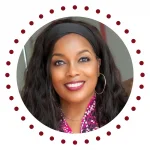
Want Karan to be Your Podcast Guest?

Want to be a Podcast Sponsor/Advertiser?
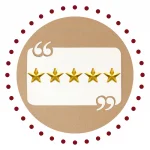
Like the Show? Please Leave a Review
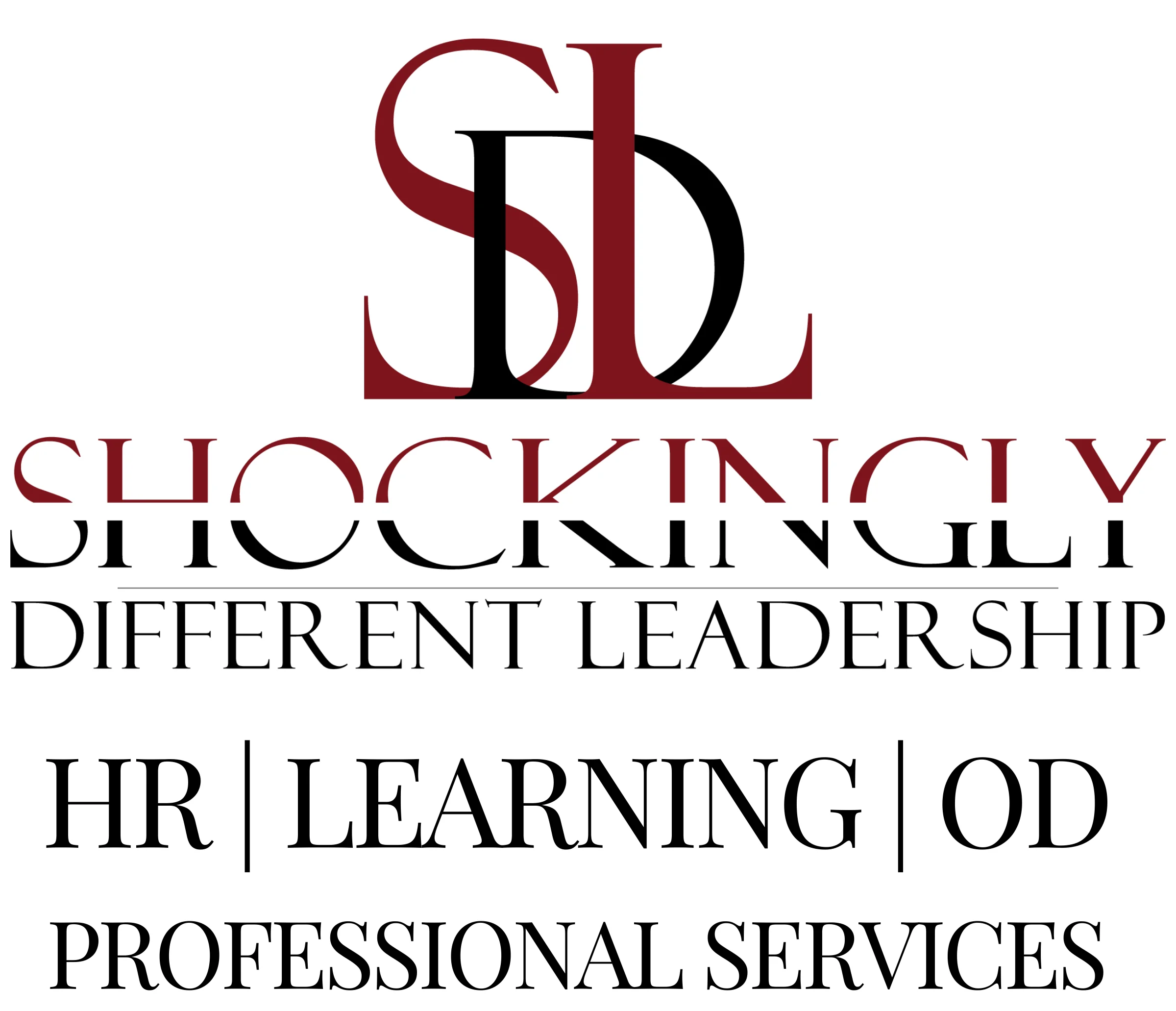
#KeepInTouch
via our podcast alerts
Subscribe now to discover why thousands of monthly listeners who are passionate about doing their best work prioritize time each week to listen to the Lead at the Top of Your Game podcast.
#AboutSDL
#WhereToFindUs
MAILING
4480-H South Cobb Drive
PMB 219
Smyrna, GA 30080
PHYSICAL
2121 NewMarket Parkway
Ste. 108
Marietta, GA 30067
#ContactOptions
Customer Service Email:
service@shockinglydifferent.com
Call or Text:
770-384-1103
#Office Hours
MON-FRI
8:30 AM – 6:30 PM
Weekends By Appointment

